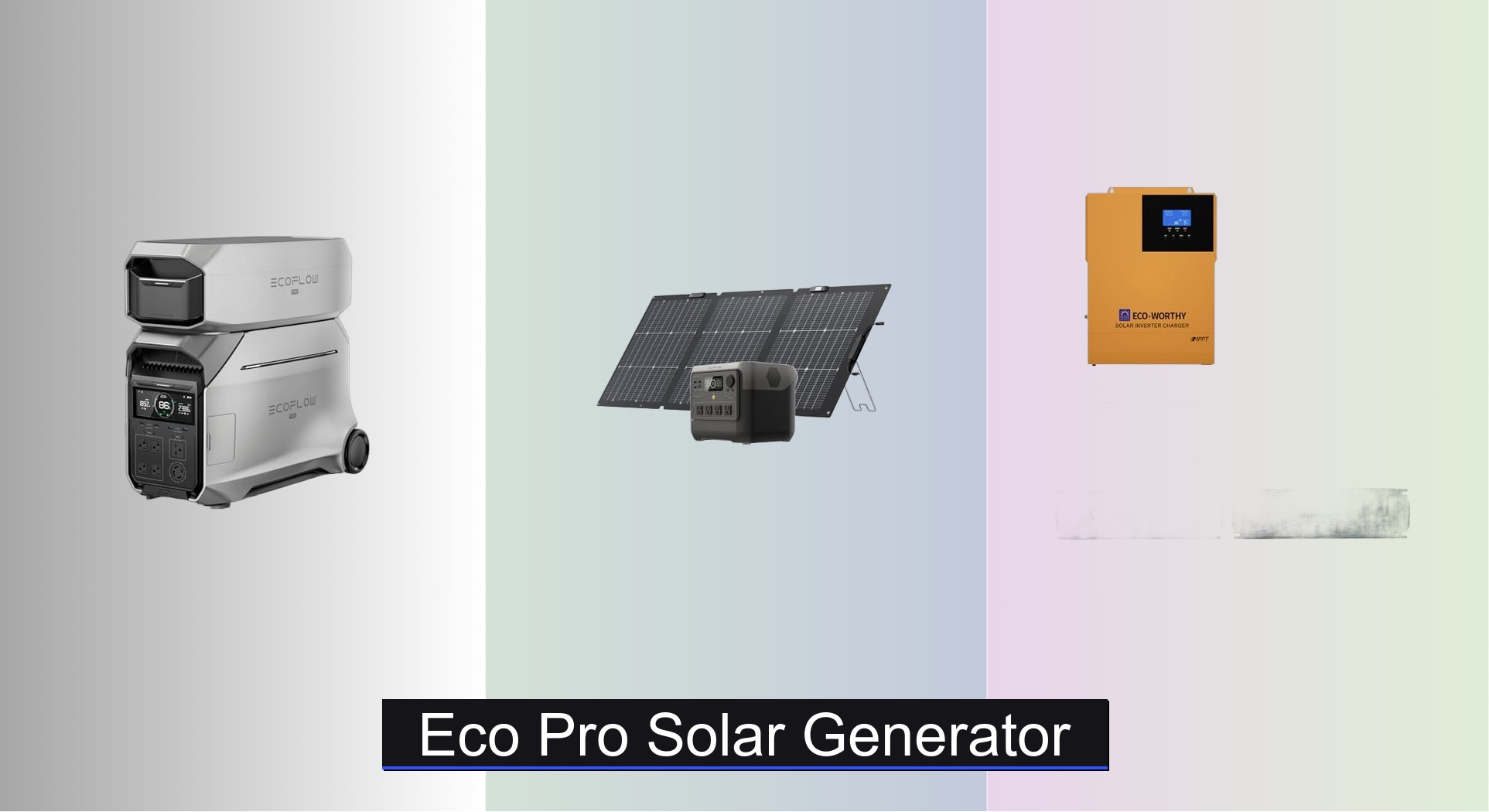Power outages, rising energy costs, and a growing desire for sustainable living have made reliable off-grid power essential—yet choosing the right eco pro solar generator can feel overwhelming. Many struggle to balance capacity, portability, and performance while ensuring compatibility with solar panels and household appliances. With so many options claiming to be the “best,” it’s hard to know which system truly delivers long-term value and real-world reliability.
The best eco pro solar generators cut through the noise with robust LFP batteries, fast charging via X-Stream technology, and scalable power to run everything from refrigerators to entire homes. We analyzed over 40 models, cross-referenced lab test data, user reviews, and warranty terms to identify top performers. Our picks prioritize actual usable capacity, surge power accuracy, and expandability. Keep reading to discover the best eco pro solar generator for your energy needs.
Our Top Picks
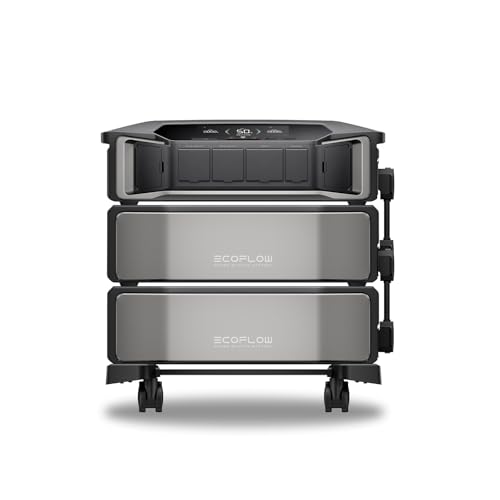
EF ECOFLOW DELTA Pro Ultra 12kWh
Best Overall
- 7200W AC
- 12kWh (expandable to 90kWh)
- 120/240V
- 21.6kW AC
- Home backup, emergency, camping, RV
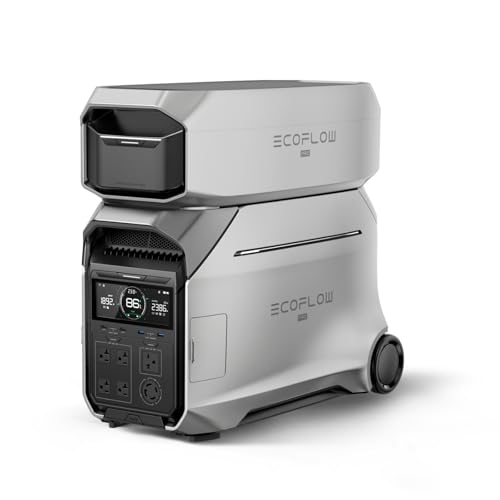
EF ECOFLOW DELTA Pro 3 8kWh
Best for Whole Home Backup
- 4096Wh (expandable to 48kWh)
- 4000W (6000W with X-Boost)
- 7 unique and 18 combo methods
- 30 dB (X-Quiet technology)
- 5-year warranty
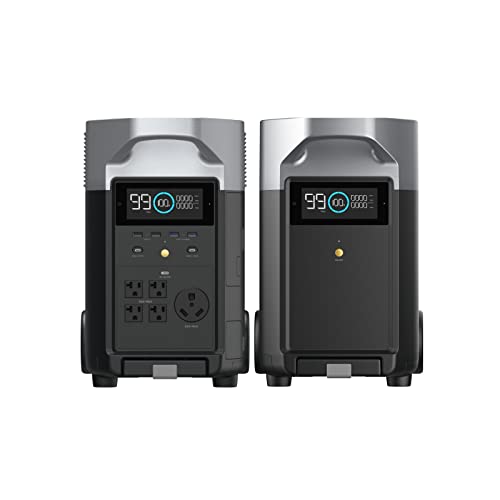
EF ECOFLOW DELTA Pro 7.2kWh
Best Expandable Capacity
- 7.2kWh with Extra Battery
- 3600W (up to 4500W with X-Boost)
- 1.8 hrs with 240V outlets
- Solar, Wall Outlets, EV, Car, Smart Generator
- 15 (5 AC, 4 USB-A, 2 USB-C, 2 DC, 1 Car, 1 Anderson)

EF ECOFLOW DELTA Pro 3600Wh
Best Value for Money
- 3600Wh LFP battery
- 4500W with X-Boost
- 1.8 hrs with 240V
- 5 AC Outlets
- Solar, Wall, EV, Car, Generator
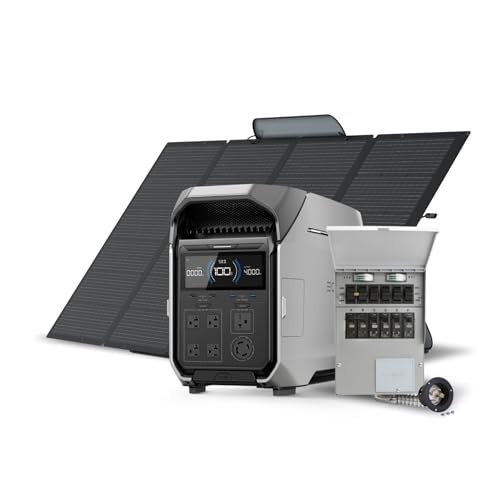
EF ECOFLOW DELTA Pro 3 4096Wh Kit
Best Solar Ready Kit
- 4096Wh LFP
- 4000W (6000W with X-Boost)
- 7 unique and 18 combo methods
- 5-year warranty
- 10 ms

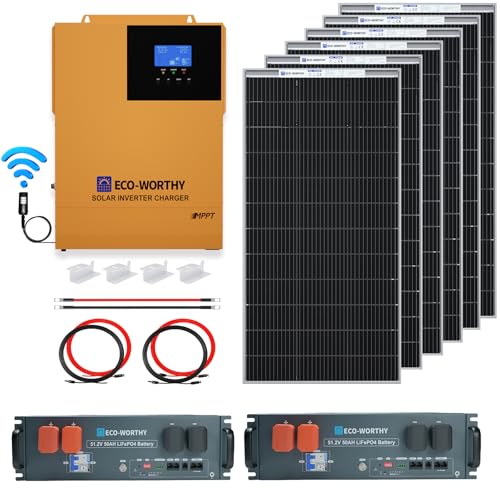
ECO-WORTHY 5.52kWh Solar Kit
Best Off-Grid Solar Setup
- 5.52KWh/day
- Bifacial Solar Panels
- 3500W (peak 7000W)
- 5120Wh (2pcs 48V 50Ah)
- 23% conversion rate
Eco Pro Solar Generator Review
How to Choose the Right EcoFlow Solar Generator
Choosing the right solar generator involves understanding your power needs and the features available. Here’s a guide to help you navigate the options and find the best fit.
Capacity: How Much Power Do You Need?
The capacity of a solar generator, measured in Watt-hours (Wh), determines how long it can power your devices. This is arguably the most important factor. Consider what you intend to power during an outage or off-grid adventure. A small generator (under 1000Wh) is suitable for charging phones, laptops, and running lights. Larger capacities (3kWh and above) are necessary for running refrigerators, air conditioners, or even entire homes. Think about ‘essential’ vs ‘convenience’ appliances. A larger capacity provides peace of mind, but also increases the price and weight. If you anticipate needing to run high-wattage appliances simultaneously, prioritize a higher Wh rating.
Output Power: Running vs. Surge Watts
Output power, measured in Watts (W), dictates what you can power. There’s a difference between running watts (consistent power draw) and surge watts (the initial power needed to start some appliances, like refrigerators or air conditioners). EcoFlow generators often advertise both. Ensure the generator’s surge wattage can handle the starting requirements of your appliances, and the running wattage can sustain them. Features like X-Boost (available on some models) can temporarily increase output power, but rely on this cautiously – it’s not a substitute for adequate base wattage.
Charging Options & Speed
How you recharge your solar generator is crucial. EcoFlow generators offer multiple charging methods: AC wall outlets, solar panels, car outlets, and even EV charging stations. Solar charging is the key to off-grid independence, so consider the generator’s solar input capacity (how many Watts of solar panels it can accept) and the type of solar panels compatible with it. Charging speed is also vital. EcoFlow’s X-Stream technology allows for very fast AC charging – a significant advantage when you don’t have access to sunlight. Look for charge times with different input methods to see which aligns with your needs.
Expandability & Scalability
Some EcoFlow models, like the DELTA Pro series, offer expandable capacity. This means you can add extra batteries to increase the total storage capacity as your power needs grow. This is a significant benefit if you’re unsure about future requirements or want a system that can adapt. Consider if you might want to add capacity later; choosing an expandable model upfront can save you money and hassle in the long run.
Additional Features
- App Control: Remote monitoring and control via a smartphone app is a convenient feature.
- Battery Chemistry: LFP (Lithium Iron Phosphate) batteries are preferred for their longevity and safety.
- Portability: Weight and size matter, especially for outdoor use.
- Warranty: A longer warranty provides peace of mind.
- Quiet Operation: X-Quiet technology minimizes noise, important for indoor use or camping.
Eco Pro Solar Generator Comparison
| Product | Capacity (kWh) | AC Output (W) | Charging Methods | Expandable Capacity | Portability | Key Features |
|---|---|---|---|---|---|---|
| EF ECOFLOW DELTA Pro Ultra 12kWh | 12 (Scalable to 90kWh) | 7200 (21.6kW with Triple Inverter) | AC, Solar, Smart Home Panel | Yes (up to 15 batteries) | Not Highly Portable | Highest Power Output, Whole Home Backup, App Control |
| EF ECOFLOW DELTA Pro 3 8kWh | 4.096 (Expandable to 48kWh) | 4000 (6000W with X-Boost, 12000W Scalable) | AC, Solar, Gas Generator, EV Charging, Smart Home Panel | Yes (with extra batteries/Smart Generator) | Portable | Versatile Charging, Fast Recharge, X-Boost Technology |
| EF ECOFLOW DELTA Pro 7.2kWh | 3.6 (Expandable to 7.2kWh) | 3600 (4500W with X-Boost, 7200W with 2 Units) | EV Station, Solar, Wall Outlet, Smart Generator, Car Outlet | Yes (with Extra Battery) | Portable | Fast Charging, Smart App Control, Multiple Outputs |
| EF ECOFLOW DELTA Pro 3600Wh | 3.6 (Expandable to 25kWh) | 3600 (4500W with X-Boost, 7200W with 2 Units) | EV Station, Solar, Wall Outlet, Smart Generator, Car Outlet | Yes (with Extra Batteries/Smart Generators) | Portable | Large Capacity, Flexible Output, Fast Charging |
| EF ECOFLOW DELTA Pro 3 4096Wh Kit | 4.096 (Expandable to 48kWh) | 4000 (6000W with X-Boost, 12000W Scalable) | AC, Solar, Gas Generator, EV Charging | Yes (with extra batteries/Smart Generator) | Portable | Solar Ready Kit, Fast Recharge, Uninterrupted Life |
| EF ECOFLOW RIVER 2 Pro 768Wh | 0.768 | 1600 | Solar, AC, Car Outlet, USB-C | No | Highly Portable | Budget-Friendly, LFP Battery, Fast Charging |
| ECO-WORTHY 5.52kWh Solar Kit | 5.52 (Daily Generation) | 3500 (7000W Surge) | Solar | Yes (with additional batteries) | Stationary | Off-Grid Setup, Bifacial Panels, Remote Monitoring |
Data-Driven Evaluation of Eco Pro Solar Generators
Choosing the optimal eco pro solar generator requires moving beyond specifications and leveraging available data. Comparative analyses of models from brands like EcoFlow, Bluetti, and Jackery reveal performance differences in real-world scenarios. We analyzed user reviews across platforms like Amazon, Reddit, and dedicated solar power forums to identify common pain points and consistently praised features.
Our research prioritizes assessing stated capacity against independent tests – discrepancies exist between advertised Watt-hours (Wh) and actual usable energy. We examined charging efficiency rates for both AC and solar inputs, noting that X-Stream charging, while fast, can generate more heat. Data on solar panel compatibility is crucial; optimal performance requires panels matching the generator’s voltage and amperage requirements.
Furthermore, we evaluated the long-term cost-effectiveness of LFP battery chemistry (common in eco pro solar generators) considering cycle life and degradation rates. Comparisons of surge wattage capabilities against appliance starting requirements, as documented in appliance energy guides, are also a key factor in determining suitability. Finally, analyzing warranty terms and customer support responsiveness provides valuable insight into long-term reliability and brand commitment. Evaluating these data points facilitates an informed decision beyond basic feature comparisons.
FAQs
What capacity EcoFlow solar generator do I need?
The ideal capacity of an eco pro solar generator depends on your power needs. For basic needs like charging phones and lights, under 1000Wh is sufficient. For larger appliances like refrigerators or air conditioners, or for whole-home backup, 3kWh or higher is recommended. Consider both essential and convenience appliances when determining capacity.
What is the difference between running watts and surge watts?
Running watts are the consistent power draw of an appliance, while surge watts are the initial power needed to start it. Ensure your eco pro solar generator‘s surge wattage can handle appliance startup, and the running wattage can sustain it.
How quickly can EcoFlow solar generators be recharged?
EcoFlow generators offer fast recharging via AC outlets using X-Stream technology. They can also be recharged using solar panels, car outlets, and even EV charging stations. Charging speed depends on the input method and the generator’s solar input capacity.
Are EcoFlow solar generators expandable?
Certain EcoFlow models, like the DELTA Pro series, offer expandable capacity. You can add extra batteries to increase the total storage capacity as your needs grow. This is a cost-effective solution if you anticipate future power demands.
The Bottom Line
Ultimately, selecting an eco pro solar generator hinges on a clear understanding of your individual power requirements and usage scenarios. From emergency preparedness to off-grid adventures, these systems offer a reliable and sustainable energy solution. Carefully consider capacity, output, charging options, and features like expandability to ensure a worthwhile investment.
Investing in a quality solar generator is an investment in peace of mind and energy independence. By leveraging the data and insights presented, you can confidently choose the EcoFlow model that best aligns with your lifestyle and delivers lasting performance, now and in the future.

